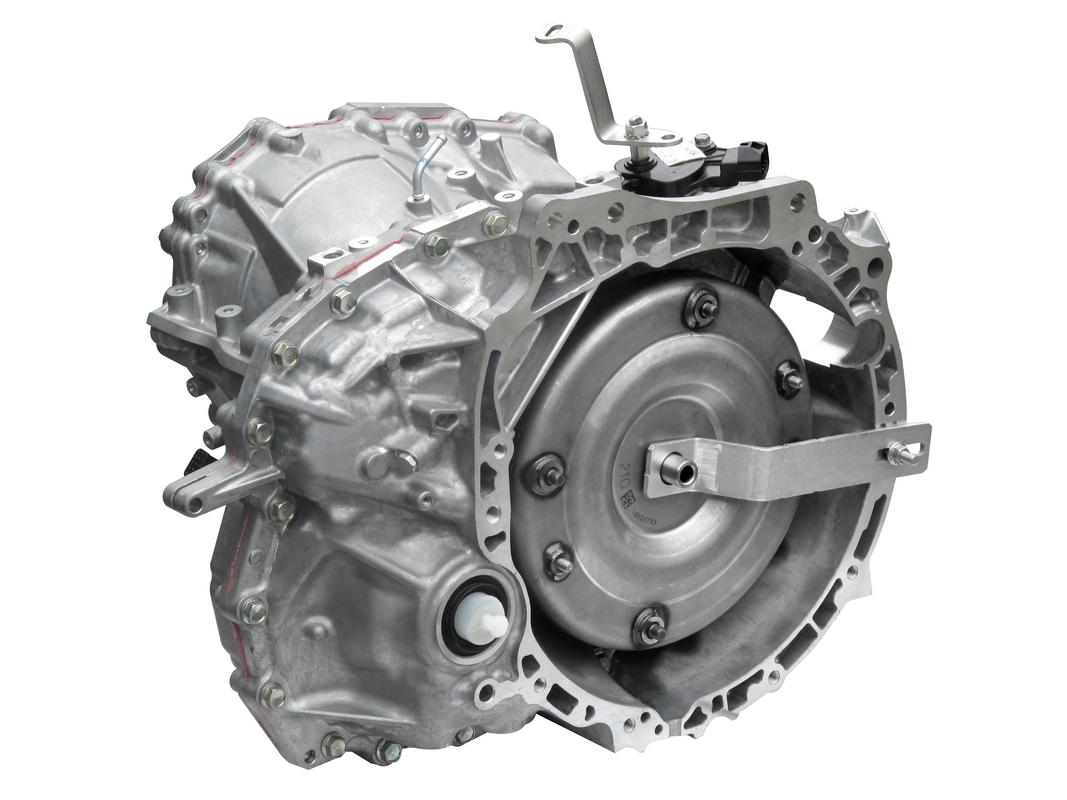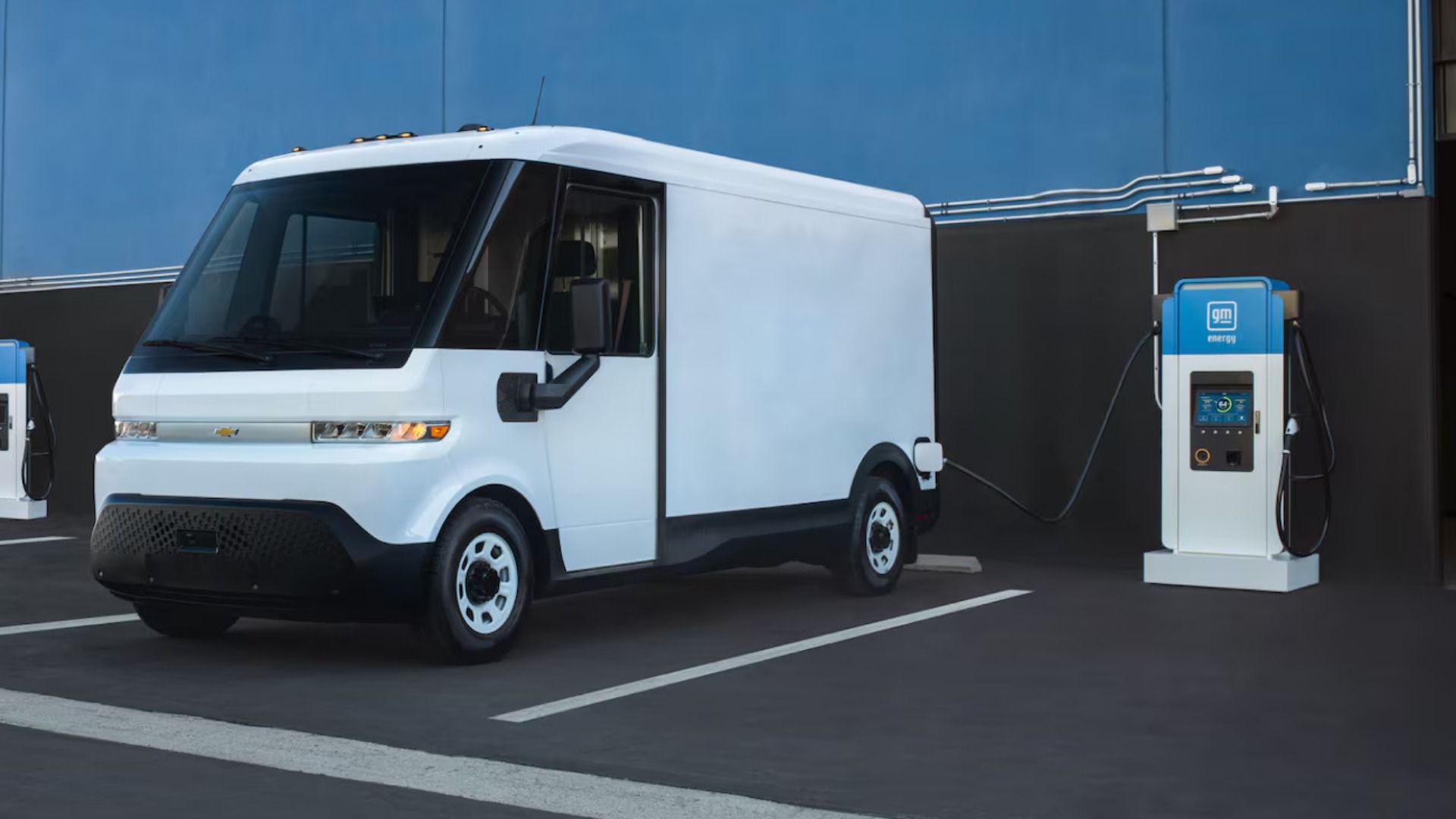The Faceoff: Used car prices soar on increased demand and decreased supply, but do automotive groups like AutoCanada or Sonic Automotive benefit from this?
“,”heading”:””,”fullWindow”:false,”fullBleed”:false,”showFullBleedOnMobile”:false,”headColor”:””,”type”:”html5mobile”,”textColor”:””,”mobileImageUrl”:””,”bgColor”:””,”imageUrl”:””,”registeredOnly”:false,”linkUrl”:””,”aodaTitle”:”iframe”,”internalScroll”:false,”displayStyle”:”small-up”},”type”:”mainart”,”data”:”captionPosition”:”overlay”,”fullWindowMainart”:false,”type”:”image”,”imageid”:”GBT1AP30M.3″,”origImageSize”:”1200×800″,”lastmodified”:1631222229524,”forceoriginal”:false,”caption”:”While increasing car prices have put a damper on the excitement of buying a car, Canadians can benefit from this by investing in an automotive group.”,”source”:”Dreamstime”,”credit”:””,”url”:”/content/dam/thestar/business/2021/09/11/the-faceoff-used-car-prices-soar-on-increased-demand-and-decreased-supply-but-do-automotive-groups-like-autocanada-or-sonic-automotive-benefit-from-this/car_dealership.jpg”,”mainartSize”:”medium”,”renditions”:[“url”:”https://images.thestar.com/y9w3EVc5lIoJmACfVJ16CwzlaOM=/1200×800/smart/filters:cb(1631222229524)/https://www.thestar.com/content/dam/thestar/business/2021/09/11/the-faceoff-used-car-prices-soar-on-increased-demand-and-decreased-supply-but-do-automotive-groups-like-autocanada-or-sonic-automotive-benefit-from-this/car_dealership.jpg”,”width”:1200,”height”:800,”scalefactor”:100,”url”:”https://images.thestar.com/3EHSog51t9BlOCWJ_on7MhreDrw=/1086×724/smart/filters:cb(1631222229524)/https://www.thestar.com/content/dam/thestar/business/2021/09/11/the-faceoff-used-car-prices-soar-on-increased-demand-and-decreased-supply-but-do-automotive-groups-like-autocanada-or-sonic-automotive-benefit-from-this/car_dealership.jpg”,”width”:1086,”height”:724,”scalefactor”:91,”url”:”https://images.thestar.com/Xv8hyZBlzj0xL5nFhWoL_UtCsxg=/968×645/smart/filters:cb(1631222229524)/https://www.thestar.com/content/dam/thestar/business/2021/09/11/the-faceoff-used-car-prices-soar-on-increased-demand-and-decreased-supply-but-do-automotive-groups-like-autocanada-or-sonic-automotive-benefit-from-this/car_dealership.jpg”,”width”:968,”height”:645,”scalefactor”:81,”url”:”https://images.thestar.com/HEtGm2drZKY-fhI1SobLApji6JU=/850×567/smart/filters:cb(1631222229524)/https://www.thestar.com/content/dam/thestar/business/2021/09/11/the-faceoff-used-car-prices-soar-on-increased-demand-and-decreased-supply-but-do-automotive-groups-like-autocanada-or-sonic-automotive-benefit-from-this/car_dealership.jpg”,”width”:850,”height”:567,”scalefactor”:71,”url”:”https://images.thestar.com/wkJfsDO4heFIl83wm0wEOSERUy0=/650×433/smart/filters:cb(1631222229524)/https://www.thestar.com/content/dam/thestar/business/2021/09/11/the-faceoff-used-car-prices-soar-on-increased-demand-and-decreased-supply-but-do-automotive-groups-like-autocanada-or-sonic-automotive-benefit-from-this/car_dealership.jpg”,”width”:650,”height”:433,”scalefactor”:54,”url”:”https://images.thestar.com/ojXHmXQsxkusTsZDpvgZWwtqQ-c=/605×403/smart/filters:cb(1631222229524)/https://www.thestar.com/content/dam/thestar/business/2021/09/11/the-faceoff-used-car-prices-soar-on-increased-demand-and-decreased-supply-but-do-automotive-groups-like-autocanada-or-sonic-automotive-benefit-from-this/car_dealership.jpg”,”width”:605,”height”:403,”scalefactor”:50,”url”:”https://images.thestar.com/cBYReVD8gU0Wq9-X_MPsZvyxlws=/480×320/smart/filters:cb(1631222229524)/https://www.thestar.com/content/dam/thestar/business/2021/09/11/the-faceoff-used-car-prices-soar-on-increased-demand-and-decreased-supply-but-do-automotive-groups-like-autocanada-or-sonic-automotive-benefit-from-this/car_dealership.jpg”,”width”:480,”height”:320,”scalefactor”:40,”url”:”https://images.thestar.com/iTafStauDE9aAci8fqre_y7wD2I=/400×267/smart/filters:cb(1631222229524)/https://www.thestar.com/content/dam/thestar/business/2021/09/11/the-faceoff-used-car-prices-soar-on-increased-demand-and-decreased-supply-but-do-automotive-groups-like-autocanada-or-sonic-automotive-benefit-from-this/car_dealership.jpg”,”width”:400,”height”:267,”scalefactor”:33,”url”:”https://images.thestar.com/LOoVumuNiRSd8K5ZlTElEtO6pvQ=/320×213/smart/filters:cb(1631222229524)/https://www.thestar.com/content/dam/thestar/business/2021/09/11/the-faceoff-used-car-prices-soar-on-increased-demand-and-decreased-supply-but-do-automotive-groups-like-autocanada-or-sonic-automotive-benefit-from-this/car_dealership.jpg”,”width”:320,”height”:213,”scalefactor”:27,”url”:”https://images.thestar.com/3UbmfKigi0Z0gfha5KsmHsIxlpI=/93×62/smart/filters:cb(1631222229524)/https://www.thestar.com/content/dam/thestar/business/2021/09/11/the-faceoff-used-car-prices-soar-on-increased-demand-and-decreased-supply-but-do-automotive-groups-like-autocanada-or-sonic-automotive-benefit-from-this/car_dealership.jpg”,”width”:93,”height”:62,”scalefactor”:8],”isLandscape”:true,”text”:”If you’ve bought a used car this year, odds are you experienced a bit of sticker shock. An article by CTVNews.ca last month shows that the average price of a used car on AutoTrader.ca increased roughly 13 per cent from July 2020 to July 2021.”,”type”:”text”,”isParagraph”:true,”text”:”A shortage of microchips has led to fewer new cars being manufactured. This increases consumer demand for used cars and pushes up prices. AutoCanada operates franchise automobile dealerships across Canada and in the state of Illinois. The company sells both new and used vehicles.”,”type”:”text”,”isParagraph”:true,”type”:”ad”,”heading”:”ARTICLE CONTINUES BELOW”,”name”:”ArticleFirstBigBox”,”display”:”medium-down”,”pos”:”1″,”interstitial”:true,”sizes”:[[300,250]],”text”:”In its second-quarter fiscal 2021 results, the company reported revenues of $1.3 billion, up from $727 million the prior year driven by an increase in used car sales of $339 million. Overall net income for the period is up to $38 million, from a $20-million net loss in 2020 driven by improved gross margins.”,”type”:”text”,”isParagraph”:true,”text”:”Warren Barnard, executive director at the Used Car Dealers Association of Ontario, notes that there are both demand and supply factors that have increased the price of used cars.”,”type”:”text”,”isParagraph”:true,”text”:”“A lot of experts were surprised that the demand early on in the pandemic was as strong as it was. In fact, to a large degree, (the demand) had increased as people from larger cities, who may not have been in the market for a vehicle, had issues with transit and ride share,” Barnard noted.”,”type”:”text”,”isParagraph”:true,”text”:”From a supply perspective, Barnard explained that the original equipment manufacturers “miscalculated what demand would be for new vehicles,” which led to manufacturers reducing or cancelling orders for microchips. As a result, there were fewer cars on hand and lead times increased for new cars. Both factors have driven up demand for used cars, whereby possession is within a few weeks instead of a few months.”,”type”:”text”,”isParagraph”:true,”type”:”textBreakPoint”,”insertAt”:”contentMiddleBreakPoint”,”type”:”ad”,”heading”:”ARTICLE CONTINUES BELOW”,”name”:”ArticleSecondBigBox”,”display”:”medium-down”,”pos”:”2″,”interstitial”:true,”sizes”:[[300,250]],”text”:”For those of you holding out for a new car, Barnard cautions that “the chip shortage does not look like it will end until at least 2022.””,”type”:”text”,”isParagraph”:true,”type”:”articleRelatedInlinePrimary”,”text”:”Sonic Automotive’s revenues increase 59 per cent in the second-quarter fiscal 2021“,”type”:”text”,”isParagraph”:true,”snippet”:”“,”heading”:””,”fullWindow”:false,”fullBleed”:false,”showFullBleedOnMobile”:false,”headColor”:””,”type”:”html5mobile”,”textColor”:””,”mobileImageUrl”:””,”bgColor”:””,”imageUrl”:””,”registeredOnly”:false,”linkUrl”:””,”aodaTitle”:”iframe”,”internalScroll”:false,”displayStyle”:”small-up”,”text”:”Sonic Automotive was founded in 1997 and is based in Charlotte, N.C. As of Dec. 31, 2020, the company operated 96 new vehicle franchises, 14 collision repair centres and 16 EchoPark stores (its used vehicle division).”,”type”:”text”,”isParagraph”:true,”type”:”stn-smart-player”,”text”:”In its second-quarter fiscal 2021 results, the company reported total revenues of $3.4 billion (U.S.), from $2.1 billion the prior year driven by a $56-million increase in new vehicle sales. Overall net income more than tripled to $114 million, compared to $31 million in 2020.”,”type”:”text”,”isParagraph”:true,”text”:”Given Sonic Automotive’s exposure to the new and used vehicle markets, it has both benefitted and suffered from the microchip shortage.”,”type”:”text”,”isParagraph”:true,”type”:”slimcut”,”text”:”Dimitry Anastakis, L.R. Wilson/R.J. Currie chair in Canadian business history at the Rotman School and the department of history at the University of Toronto, notes that the microchip shortage is due, in part, to a lack of manufacturers.”,”type”:”text”,”isParagraph”:true,”text”:”“Part of the problem is that there are only so many chip manufactures and chip facilities in the world. There is a big lag (from the time orders are placed) and it is difficult to ramp up microchip production. In a way, it is easier to ramp up car production because there are more facilities around and more flexibility.””,”type”:”text”,”isParagraph”:true,”type”:”relatedStories”,”relatedStories”:[],”type”:”cta”,”buttonText”:”Sign Up Now”,”buttonLink”:”/emails.html?nsrc=article-inline-business”,”description”:”Read the business news and analysis that matters most every morning, including the latest on what the coronavirus means for you, in our Star Business email newsletter.”,”title”:”Get more business in your inbox”,”text”:”Anastakis also noted a change in the industry from a growth and consolidation perspective. Leading up to and during the pandemic, automotive groups have been buying bricks-and-mortar franchises to add to their network while expanding their online presence to cater to different markets. Online sales have increased during the pandemic as health concerns deter people from visiting dealerships.”,”type”:”text”,”isParagraph”:true,”text”:”When asked about how much longer supply chain disruptions will continue, Anastakis explained that “it depends on COVID.” However, he predicts that “by the summer of 2022, I think we will pretty much be back to normal in terms of people being able to get the cars they want.””,”type”:”text”,”isParagraph”:true,”text”:”Bottom line“,”type”:”text”,”isParagraph”:true,”type”:”textBreakPoint”,”insertAt”:”contentEndBreakPoint”,”text”:”While increasing car prices have put a damper on the excitement of buying a car, Canadians can benefit from this by investing in an automotive group. AutoCanada reported a $58-million increase in its net profit in the second-quarter fiscal 2021 from the prior year, compared to an $83 million ($105 million converted to Canadian dollars) increase for Sonic Automotive. Sonic Automotive’s strong net income growth and the strength of the U.S. dollar (which allows the company to feasibly bid higher at Canadian car auctions) gives it the thumbs-up this week. “,”type”:”text”,”isParagraph”:true,{“text”:”Chen Liu is a freelance contributor to the Star’s Business section. Reach him via email: [email protected]“,”author”:”author”:”Chen Liu”,”photo”:”origImageSize”:”3776×6720″,”lastmodified”:2700061000,”url”:”/content/dam/thestar/columnist_logos/Liu_Chen_logo2021.jpg”,”sizes”:”1:1″:”small”:”https://images.thestar.com/X4DIQYCT7w8p2NA1TmyJBiOnEW4=/100×100/smart/https://www.thestar.com/content/dam/thestar/columnist_logos/Liu_Chen_logo2021.jpg”,”3:2″:”small”:”https://images.thestar.com/ft-fEJ5iq2b5SDfzVnNzftXkVLA=/114×76/smart/https://www.thestar.com/content/dam/thestar/columnist_logos/Liu_Chen_logo2021.jpg”,”medium”:”https://images.thestar.com/FRUa9JVkIAqjL1bqZey_k5zX12Q=/330×220/smart/https://www.thestar.com/content/dam/thestar/columnist_logos/Liu_Chen_logo2021.jpg”,”large”:”https://images.thestar.com/u9DKJXebJ8dx0xVwicwUNp-YI5I=/690×460/smart/https://www.thestar.com/content/dam/thestar/columnist_logos/Liu_Chen_logo2021.jpg”,”21:9″:”large”:”https://images.thestar.com/Cs1tarwfDnBY4e0UlOD9teTh7Ps=/1080×460/smart/https://www.thestar.com/content/dam/thestar/columnist_logos/Liu_Chen_logo2021.jpg”,”location”:””,”tag”:”liu_chen”,”credit”:”Special to the Star”,”email”:”[email protected]”,”authorPageUrl”:”https://www.thestar.com/authors.liu_chen.html”,”type”:”endnote”,”isLast”:true},”type”:”articleRelatedFooter”,”type”:”shareBar”,”type”:”trustbar”],”assetTags”:[“car”,”nicrt2″,”sonic_drive_in”,”fast_food”,”arc_cov_economy”,”covid”,”arc_cov_recovery”,”restaurants”,”microchip_technology”,”smg_business”,”pandemic”,”liu_chen”,”the_faceoff”,”covid_vaccine_workplace”,”kmi1″,”InHouseArticle_thestar”,”fast_food_restaurants”,”airlines”],”seoKeywords”:”arc cov recovery,Arc cov economy,the faceoff,covid,pandemic,airlines,KMI1,covid vaccine workplace,NICRT2,smg_business,InHouseArticle_thestar”,”excludeInRecommendations”:false,”promo”:[],”tier”:”tier1″,”related”:”pubdays”:0,”strategy”:0,”personalizationMetadata”:”inHouseArticle”:”true”,”image”:”https://images.thestar.com/F0xYDIGkNEWain3-Duo3C_ttpXY=/1280×1024/smart/filters:cb(1631362446749)/https://www.thestar.com/content/dam/thestar/business/2021/09/11/the-faceoff-used-car-prices-soar-on-increased-demand-and-decreased-supply-but-do-automotive-groups-like-autocanada-or-sonic-automotive-benefit-from-this/car_dealership.jpg”,”enableLivechat”:”false”,”images”:”https://www.thestar.com/assets/img/thestar-ribbon.png”,”noShow”:”false”,”enableConversations”:”false”,”description”:”Driving up revenue: AutoCanada vs. Sonic Automotive”,”hasImage”:true,”section”:”Business”,”abstract”:”Driving up revenue: AutoCanada vs. Sonic Automotive”,”asset_id”:”87060744-5c30-48e3-a724-31ce8c3a64d2″,”title”:”The Faceoff: Used car prices soar on increased demand and decreased supply, but do automotive groups like AutoCanada or Sonic Automotive benefit from this?”,”type”:”article”,”smg_tag”:”business”,”url”:”https://www.thestar.com/business/2021/09/11/the-faceoff-used-car-prices-soar-on-increased-demand-and-decreased-supply-but-do-automotive-groups-like-autocanada-or-sonic-automotive-benefit-from-this.html”,”site_name”:”thestar.com”,”enableLivechatadmin”:”false”,”thumbor_image”:””imageid”:”GBT1AP30M.3″,”origImageSize”:”1200×800″,”lastmodified”:1631222229524,”fullWindowMainart”:false,”forceoriginal”:false,”caption”:”While increasing car prices have put a damper on the excitement of buying a car, Canadians can benefit from this by investing in an automotive group.”,”source”:”Dreamstime”,”type”:”image”,”credit”:””,”mainartSize”:”medium”,”url”:”/content/dam/thestar/business/2021/09/11/the-faceoff-used-car-prices-soar-on-increased-demand-and-decreased-supply-but-do-automotive-groups-like-autocanada-or-sonic-automotive-benefit-from-this/car_dealership.jpg””,”published_time”:”2021-09-11T09:00:00Z”,”publisher”:”https://www.facebook.com/torontostar”,”last_modified”:”2021-09-09T21:23:33.696Z”,”author_names”:[“Chen Liu”],”authors”:”[“author”:”Chen Liu”,”photo”:”origImageSize”:”3776×6720″,”lastmodified”:2700061000,”url”:”/content/dam/thestar/columnist_logos/Liu_Chen_logo2021.jpg”]”,”seoHead”:”The Faceoff: Used car prices soar on increased demand and decreased supply, but do automotive groups like AutoCanada or Sonic Automotive benefit from this?”,”chevronTextBGColor”:”009988″,”headline”:”The Faceoff: Used car prices soar on increased demand and decreased supply, but do automotive groups like AutoCanada or Sonic Automotive benefit from this?”,”subheadline”:”Driving up revenue: AutoCanada vs. Sonic Automotive”,”canonicalUrl”:”https://www.thestar.com/business/2021/09/11/the-faceoff-used-car-prices-soar-on-increased-demand-and-decreased-supply-but-do-automotive-groups-like-autocanada-or-sonic-automotive-benefit-from-this.html”,”seoDescription”:”Driving up revenue: AutoCanada vs. Sonic Automotive”,”publishedepoch”:1631350800000,”lastmodifiedepoch”:1631222613696,”abstractVisible”:false,”relatedLinks”:[],”paywallMode”:”metered”,”storyuuid”:”87060744-5c30-48e3-a724-31ce8c3a64d2″,”republish”:true,”slideshowid”:”B881537367Z.1″,”lastmodified”:”09 09 2021″,”stnPlayer”:”type”:”stnPlayer”,”playerPosition”:”secondaryMainart”,”lastreplicated”:”Sat., Sept. 11, 2021″,”readtime”:3,”breadcrumbs”:[“label”:”Business”,”relurl”:”/business”,”url”:”https://www.thestar.com/content/thestar/business.html”],”authors”:[“author”:”Chen Liu”,”photo”:”origImageSize”:”3776×6720″,”lastmodified”:2700061000,”url”:”/content/dam/thestar/columnist_logos/Liu_Chen_logo2021.jpg”,”sizes”:”1:1″:”small”:”https://images.thestar.com/X4DIQYCT7w8p2NA1TmyJBiOnEW4=/100×100/smart/https://www.thestar.com/content/dam/thestar/columnist_logos/Liu_Chen_logo2021.jpg”,”3:2″:”small”:”https://images.thestar.com/ft-fEJ5iq2b5SDfzVnNzftXkVLA=/114×76/smart/https://www.thestar.com/content/dam/thestar/columnist_logos/Liu_Chen_logo2021.jpg”,”medium”:”https://images.thestar.com/FRUa9JVkIAqjL1bqZey_k5zX12Q=/330×220/smart/https://www.thestar.com/content/dam/thestar/columnist_logos/Liu_Chen_logo2021.jpg”,”large”:”https://images.thestar.com/u9DKJXebJ8dx0xVwicwUNp-YI5I=/690×460/smart/https://www.thestar.com/content/dam/thestar/columnist_logos/Liu_Chen_logo2021.jpg”,”21:9″:”large”:”https://images.thestar.com/Cs1tarwfDnBY4e0UlOD9teTh7Ps=/1080×460/smart/https://www.thestar.com/content/dam/thestar/columnist_logos/Liu_Chen_logo2021.jpg”,”location”:””,”tag”:”liu_chen”,”credit”:”Special to the Star”,”email”:”[email protected]”],”paywall”:true,”urlMetatag”:”https://www.thestar.com/business/2021/09/11/the-faceoff-used-car-prices-soar-on-increased-demand-and-decreased-supply-but-do-automotive-groups-like-autocanada-or-sonic-automotive-benefit-from-this.html”,”numOfParagraphs”:18,”liftigImage”:”captionPosition”:”overlay”,”fullWindowMainart”:false,”type”:”image”,”imageid”:”GBT1AP30M.3″,”origImageSize”:”1200×800″,”lastmodified”:1631222229524,”forceoriginal”:false,”caption”:”While increasing car prices have put a damper on the excitement of buying a car, Canadians can benefit from this by investing in an automotive group.”,”source”:”Dreamstime”,”credit”:””,”url”:”/content/dam/thestar/business/2021/09/11/the-faceoff-used-car-prices-soar-on-increased-demand-and-decreased-supply-but-do-automotive-groups-like-autocanada-or-sonic-automotive-benefit-from-this/car_dealership.jpg”,”mainartSize”:”medium”,”renditions”:[“url”:”https://images.thestar.com/3aJTDEsm3hNyoppD2ntOqxNOY44=/93×52/smart/filters:cb(1631222229524)/https://www.thestar.com/content/dam/thestar/business/2021/09/11/the-faceoff-used-car-prices-soar-on-increased-demand-and-decreased-supply-but-do-automotive-groups-like-autocanada-or-sonic-automotive-benefit-from-this/car_dealership.jpg”,”width”:93,”height”:52,”scalefactor”:8,”aspect”:”wide”],”seopublisheddate”:”2021-09-11″,”seomodifieddate”:”2021-09-11T09:00:04.034Z”,”primarylabel”:”label”:”Business”,”relurl”:”/business”,”url”:”https://www.thestar.com/content/thestar/business.html”,”totalParas”:0,”additionalEvents”:”,event29″}
//–>
ADVERTISEMENT
/https://www.thestar.com/content/dam/thestar/business/2021/09/11/the-faceoff-used-car-prices-soar-on-increased-demand-and-decreased-supply-but-do-automotive-groups-like-autocanada-or-sonic-automotive-benefit-from-this/car_dealership.jpg)
AutoCanada’s revenues increase 76 per cent in the second-quarter fiscal 2021
If you’ve bought a used car this year, odds are you experienced a bit of sticker shock. An article by CTVNews.ca last month shows that the average price of a used car on AutoTrader.ca increased roughly 13 per cent from July 2020 to July 2021.
A shortage of microchips has led to fewer new cars being manufactured. This increases consumer demand for used cars and pushes up prices. AutoCanada operates franchise automobile dealerships across Canada and in the state of Illinois. The company sells both new and used vehicles.
In its second-quarter fiscal 2021 results, the company reported revenues of $1.3 billion, up from $727 million the prior year driven by an increase in used car sales of $339 million. Overall net income for the period is up to $38 million, from a $20-million net loss in 2020 driven by improved gross margins.
Warren Barnard, executive director at the Used Car Dealers Association of Ontario, notes that there are both demand and supply factors that have increased the price of used cars.
“A lot of experts were surprised that the demand early on in the pandemic was as strong as it was. In fact, to a large degree, (the demand) had increased as people from larger cities, who may not have been in the market for a vehicle, had issues with transit and ride share,” Barnard noted.
From a supply perspective, Barnard explained that the original equipment manufacturers “miscalculated what demand would be for new vehicles,” which led to manufacturers reducing or cancelling orders for microchips. As a result, there were fewer cars on hand and lead times increased for new cars. Both factors have driven up demand for used cars, whereby possession is within a few weeks instead of a few months.
For those of you holding out for a new car, Barnard cautions that “the chip shortage does not look like it will end until at least 2022.”
Sonic Automotive’s revenues increase 59 per cent in the second-quarter fiscal 2021
Sonic Automotive was founded in 1997 and is based in Charlotte, N.C. As of Dec. 31, 2020, the company operated 96 new vehicle franchises, 14 collision repair centres and 16 EchoPark stores (its used vehicle division).
In its second-quarter fiscal 2021 results, the company reported total revenues of $3.4 billion (U.S.), from $2.1 billion the prior year driven by a $56-million increase in new vehicle sales. Overall net income more than tripled to $114 million, compared to $31 million in 2020.
Given Sonic Automotive’s exposure to the new and used vehicle markets, it has both benefitted and suffered from the microchip shortage.
Dimitry Anastakis, L.R. Wilson/R.J. Currie chair in Canadian business history at the Rotman School and the department of history at the University of Toronto, notes that the microchip shortage is due, in part, to a lack of manufacturers.
“Part of the problem is that there are only so many chip manufactures and chip facilities in the world. There is a big lag (from the time orders are placed) and it is difficult to ramp up microchip production. In a way, it is easier to ramp up car production because there are more facilities around and more flexibility.”
Anastakis also noted a change in the industry from a growth and consolidation perspective. Leading up to and during the pandemic, automotive groups have been buying bricks-and-mortar franchises to add to their network while expanding their online presence to cater to different markets. Online sales have increased during the pandemic as health concerns deter people from visiting dealerships.
When asked about how much longer supply chain disruptions will continue, Anastakis explained that “it depends on COVID.” However, he predicts that “by the summer of 2022, I think we will pretty much be back to normal in terms of people being able to get the cars they want.”
Bottom line
While increasing car prices have put a damper on the excitement of buying a car, Canadians can benefit from this by investing in an automotive group. AutoCanada reported a $58-million increase in its net profit in the second-quarter fiscal 2021 from the prior year, compared to an $83 million ($105 million converted to Canadian dollars) increase for Sonic Automotive. Sonic Automotive’s strong net income growth and the strength of the U.S. dollar (which allows the company to feasibly bid higher at Canadian car auctions) gives it the thumbs-up this week.
More from The Star & Partners









